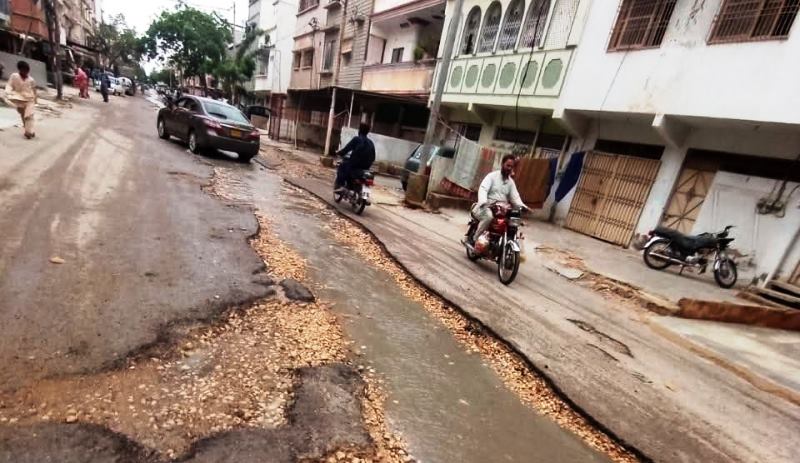Malir (Reporter) Gulshan-e-Hadeed, once envisioned as a model township on Karachi’s southeastern edge, today stands as a stark reminder of systemic neglect and civic failure. What was meant to be a peaceful, planned community has turned into a battleground for basic rights where crumbling roads, overflowing sewerage, and vanishing public funds dominate daily life.Sindh Samji Sath, a grassroots volunteer organization working for education and social justice across Sindh, has raised its voice against the deteriorating conditions. Led by Chairman Ghulam Nabi Magsi, with the support of Advocate Zeeshan Qazi, Mumtaz Ali Nareejo, and social activist Ayaz Ali Khaskheli, the group is demanding transparency, accountability, and dignity for the residents.This is not just about broken roads it’s about broken trust,” said Advocate Zeeshan Qazi, who has been documenting civic failures in the area. Despite millions allocated annually to Union Councils and Town Committees for infrastructure, the same roads in Gulshan-e-Hadeed are rebuilt repeatedly only to collapse after the first rains or careless excavations. Residents allege these funds are not misused but “looted in broad daylight.”
“They abandon projects halfway and patch with san then call it development,” said Zainab Lashari, a local schoolteacher forced to navigate potholes and detours every day.The situation worsened recently when the main road in Phase I collapsed due to unauthorized sewerage work, leaving thousands without gas for hours. Residents staged protests and blocked the National Highway. Yet, no inquiry followed and no official was held accountable.Experts and activists argue that the problem is not incompetence, but deliberate corruption. “Development funds are treated as political currency—handed to loyal contractors without oversight. What we see is plundering, not planning,” noted renowned architect Arif Hasan, echoing Sindh Samji Sath’s concerns.The Karachi Metropolitan Corporation (KMC), District Municipal Corporations (DMCs), and other development bodies face accusations of operating within a “syndicate of silence”—where kickbacks replace accountability and public service becomes a facade.
For Gulshan-e-Hadeed residents, this decay is more than an inconvenience—it is life-threatening. Flooded streets mean missed school days, broken roads delay ambulances, and unreliable utilities make survival a daily struggle.“We vote, but we live like we don’t exist,” lamented Khalil Ahmed, a retired steel mill worker.














